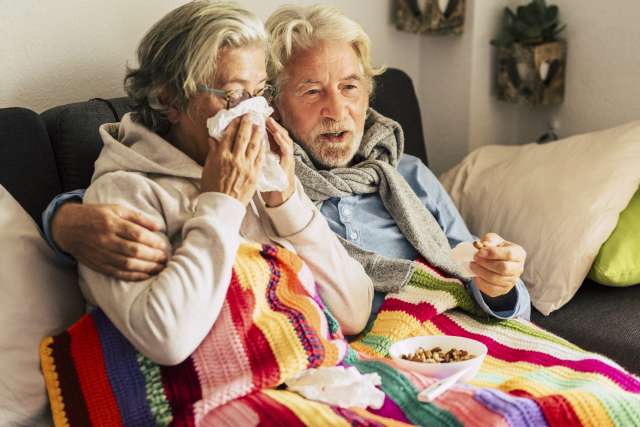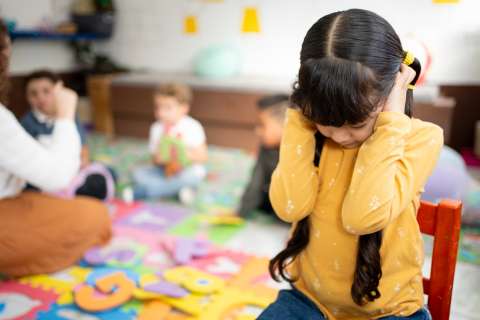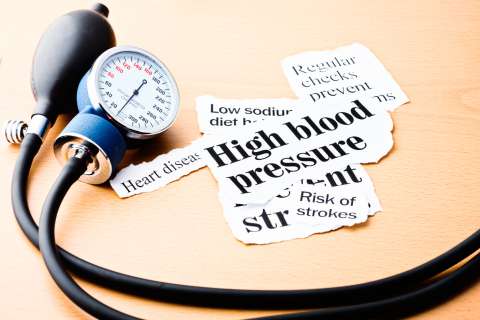More than 1 million people in the United States receive hospital care every year because of pneumonia — and 50,000 people die from the disease. Pneumonia is a serious illness, but there are steps you can take to protect yourself from it.
First, you need to understand what pneumonia is and how you get it:
What is pneumonia?
Pneumonia is an infection that develops in the lungs. Germs enter your airway and travel to your lungs and into air sacs (alveoli) — where the gas exchange between oxygen (air you breathe in) and carbon dioxide (air you breathe out) happens. If your immune system can’t get rid of the germs quickly enough, the air sacs become inflamed and fill with pus and fluid.
Types of pneumonia
There are several kinds of pneumonia, with different causes:
- Bacterial pneumonia: The most common cause of pneumonia in the United States is a bacteria called pneumococcus. Rare types of bacteria can cause atypical pneumonia, such as the more mild “walking pneumonia.”
- Viral pneumonia: Pneumonia can develop as a complication of a virus — one out of three pneumonia cases are viral. Influenza (flu) and rhinovirus are the most common causes of viral pneumonia.
- Fungal pneumonia: Inhaling fungi found in soil or animal droppings can cause this rare form of pneumonia.
- Aspiration pneumonia: An infection can happen when food or liquids are accidentally inhaled into the lungs.
Health care providers diagnose pneumonia using physical exams, X-ray imaging and lab tests. They determine whether pneumonia is viral or bacterial using a blood test or culture (mucus sample).
People at risk for pneumonia
Anyone can get pneumonia. How sick you get often depends on your age, health and the germ causing the infection. People at the highest risk of developing pneumonia are:
- Children 2 and younger: Infants and young children do not have fully developed immune systems and can’t be fully vaccinated against pneumonia until age 2. Pneumonia is the most common reason for hospitalization of children in the U.S.
- Adults 65 and older: Your immune system weakens as you age. Older adults are more likely to develop severe pneumonia and more likely to die from it.
- People with severe health conditions: Those with lung and heart diseases are at higher risk for pneumonia. Certain neurological (brain) disorders that make it difficult to cough and clear mucus also increase pneumonia risk.
- Anyone who is immunocompromised: If you have a condition that weakens your immune system, you are less likely to fight off the initial pneumonia germs.
Don’t assume you can’t get pneumonia if you don’t fall into a high-risk group. Pneumonia is the second most common reason adults of all ages are admitted to the hospital — the first is giving birth.
Is pneumonia contagious?
You cannot catch pneumonia from another person. But the bacteria and viruses that cause pneumonia are contagious.
People can share the pneumonia-causing bacteria before they have symptoms. Exposure to these bacteria doesn’t necessarily mean you’ll develop pneumonia — it depends on whether your immune system can fight off the infection. But even if you don’t develop pneumonia after exposure, you can still pass the bacteria to others.
You can catch pneumonia-causing viruses the same way you catch a cold. As symptoms start to go away, you become less contagious.
Symptoms of pneumonia can vary depending on age but commonly include:
- Chest pain when you breathe or cough
- Difficulty breathing and shortness of breath
- Fever and chills lasting longer than a few days
- Nausea or vomiting
- Persistent cough, either with or without mucus
Tips for avoiding and preventing the spread of pneumonia
There are ways to protect yourself against pneumonia, including:
Getting vaccinated
Pneumococcal vaccines protect you from up to 20 types of bacteria that cause pneumonia. The Centers for Disease Control and Prevention (CDC) recommends a pneumococcal vaccine for:
- Children under age 2
- People 2 to 64 who have certain risk factors or medical conditions
- Adults 65 and older
Pneumonia vaccination isn’t the only immunization that helps prevent pneumonia: Your annual flu vaccine can prevent or minimize the flu and prevent it from developing into pneumonia.
Making healthy lifestyle choices
A strong immune system can help protect you from pneumonia. Support your immune system by:
- Eating a healthy diet full of whole foods
- Exercising, which can help flush bacteria out of your lungs and airways
- Limiting alcohol because heavy drinking can weaken your immune system
- Staying away from drugs, which can irritate your lungs (if smoked) or drain you, leaving you at risk for infection
Quitting smoking is another lifestyle choice that decreases your risk for pneumonia. Smokers have a harder time clearing mucus from airways, making it more likely for an infection to develop.
Practicing good hygiene
The same hygiene practices you use to avoid catching colds and spreading germs apply to pneumonia prevention. Protect yourself and others by:
- Not touching your face
- Sneezing into your elbow
- Washing your hands often
- Wearing a mask in crowded or poorly ventilated areas



